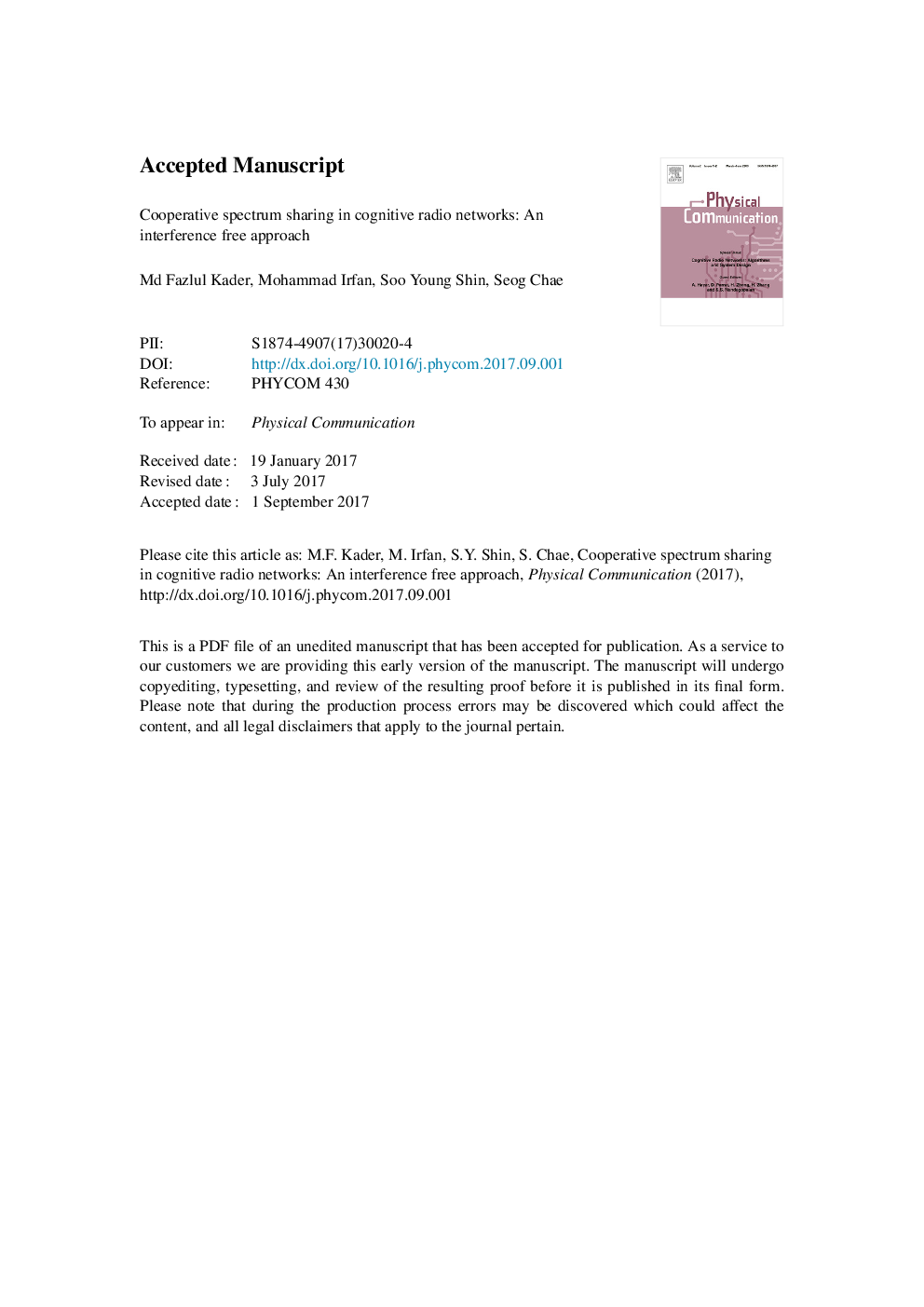| Article ID | Journal | Published Year | Pages | File Type |
|---|---|---|---|---|
| 4957586 | Physical Communication | 2017 | 23 Pages |
Abstract
We present a novel interference free dual-hop cooperative spectrum sharing protocol in cognitive radio networks exploiting spatial modulation (SM) at both primary transmitter (PT) and secondary transmitter (ST). A ST equipped with multi-antenna acts as a half-duplex decode-and-forward relay for the primary system. During phase-1, SM is invoked at PT, while ST keeps silent. The information bit stream of PT is mapped into two different sets: the M-ary phase shift keying (M-PSK)/M-ary quadrature amplitude modulation (M-QAM) bits and the antenna index. The ST then exploits iterative-maximum ratio combining (i-MRC) technique to de-map the block of information bits, transmitted by PT. During phase-2, ST forwards the primary data by activating only one antenna based on its own secondary data exploiting the concept of SM. The PT's data is then retrieved at the primary receiver (PR) and the secondary receiver (SR) recover its own desired data by detecting only the transmit antenna indices of ST using i-MRC. As a result, mutual interference between primary and secondary systems is avoided and interference cancellation techniques at the PR and SR are no longer needed. In the proposed protocol, the primary user does not need to lease its spectrum or time slots to the secondary user in exchange for cooperation. Moreover, power of ST does not need to be distributed for primary and secondary transmission simultaneously during phase-2. The simulation and analytical results are presented to show effectiveness of the proposed protocol compared to conventional spectrum leasing and superposition coding based overlay protocols.
Related Topics
Physical Sciences and Engineering
Computer Science
Computer Networks and Communications
Authors
Md Fazlul Kader, Mohammad Irfan, Soo Young Shin, Seog Chae,
